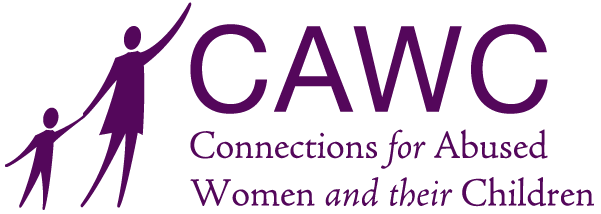When people think about a domestic violence service center, they often picture an emergency shelter that provides abuse survivors with a safe place to stay. While shelter is a crucial service, many nonprofit domestic violence advocacy groups also offer a range of holistic care programs that work toward supporting survivors’ long-term well-being. These services address not one but multiple challenges that survivors face.
Organizations like Connections for Abused Women and Their Children (CAWC) exemplify how holistic domestic violence services can empower survivors, rebuild lives, and break the cycle of abuse.
Crisis Hotlines
Immediate support is critical for survivors experiencing abuse or seeking resources. Domestic violence crisis hotlines operate 24/7 to provide confidential assistance, guidance, and emotional support. Trained advocates help survivors assess their situation, connect with resources, and take the next steps toward safety. CAWC operates a domestic violence crisis hotline (773.278.4566), offering round-the-clock support to those in need.
Hospital Crisis Intervention
Emergency rooms often serve as a first point of contact for survivors seeking help after experiencing violence. Domestic violence nonprofits place advocates in hospitals to provide immediate crisis intervention, emotional support, and connections to resources. This service ensures that survivors do not leave medical facilities without a plan for safety and ongoing support.
Safety Planning
Leaving an abusive relationship is a complex and dangerous process. Safety planning helps survivors develop a personalized plan to reduce risk, whether they are preparing to leave or are still in the relationship. Domestic violence organizations offer confidential safety planning services, empowering survivors with strategies for protecting themselves and their children. This includes securing housing, managing digital privacy, and preparing an emergency escape plan.
Collaboration With Police
Effective responses to domestic violence require strong partnerships between nonprofits and law enforcement agencies. Many organizations work closely with police to ensure survivors receive immediate support when they report abuse. This collaboration can include coordinated responses, survivor-centered training for officers, and advocacy programs within police departments to improve how cases are handled.
Children’s Counseling
Domestic violence deeply affects children, even if they are not physically harmed. Exposure to violence at a young age increases the risk of anxiety, depression, and behavioral issues. Domestic violence nonprofits provide trauma-informed counseling and support groups for children to help them process their experiences and develop healthy coping skills. CAWC’s services include specialized programs for children, ensuring that young survivors and families receive the emotional support they need to heal.
Alcohol and Drug Treatment Programs
Survivors of domestic violence often experience substance use challenges, whether due to self-medicating to cope with trauma or because an abusive partner has controlled or coerced their substance use. Tailored treatment programs that integrate domestic violence support with substance use recovery are essential. CAWC recognizes this need and offers specialized support for survivors struggling with addiction, ensuring they receive trauma-informed care that addresses both challenges simultaneously.
Court Advocacy
The legal system can be overwhelming for survivors seeking protection from their abusers. Court advocacy programs help survivors navigate the legal process, including filing for orders of protection, understanding their rights, and accessing legal representation. Nonprofits like CAWC offer court advocacy services, ensuring that survivors have knowledgeable professionals by their side when pursuing legal action against their abusers.
Education and Training for Healthcare and Community Professionals
Healthcare providers, social workers, and law enforcement officers are often the first to encounter survivors of domestic violence. Nonprofits offer training programs to help professionals recognize signs of abuse, provide trauma-informed care, and connect survivors with services. Organizations like CAWC engage in community education initiatives, ensuring that professionals are equipped to support survivors effectively.
Domestic violence nonprofits do far more than provide emergency shelter — they offer holistic, survivor-centered services that address the many interconnected challenges survivors face. From substance use treatment and children’s counseling to legal advocacy and crisis intervention, these programs create pathways to safety, healing, and independence.
Organizations like CAWC exemplify the power of holistic support, ensuring that survivors receive the comprehensive care they need to reclaim their lives and build a future free from abuse.
Support 24/7 Advocacy and Support Services With CAWC
At Connections for Abused Women and Their Children (CAWC), we believe that everyone has a right to a life free from abuse and violence. Our mission to end domestic violence in all demographics is rooted in education, service, and advocacy. In addition to working toward broader social change, we provide empowerment-based and trauma-informed support in the form of shelter, counseling, and advocacy for individuals and their children affected by intimate partner violence.
If you or someone you know is actively experiencing the impacts of abuse or sexual violence, don’t hesitate to call our 24-hour hotline at 773-278-4566. For nonemergency support, reach out through our contact form today.
Want to help us protect more survivors and children? You can impact the life of a domestic violence survivor or a child who witnessed domestic violence by donating to CAWC today or by supporting our work in other ways.
